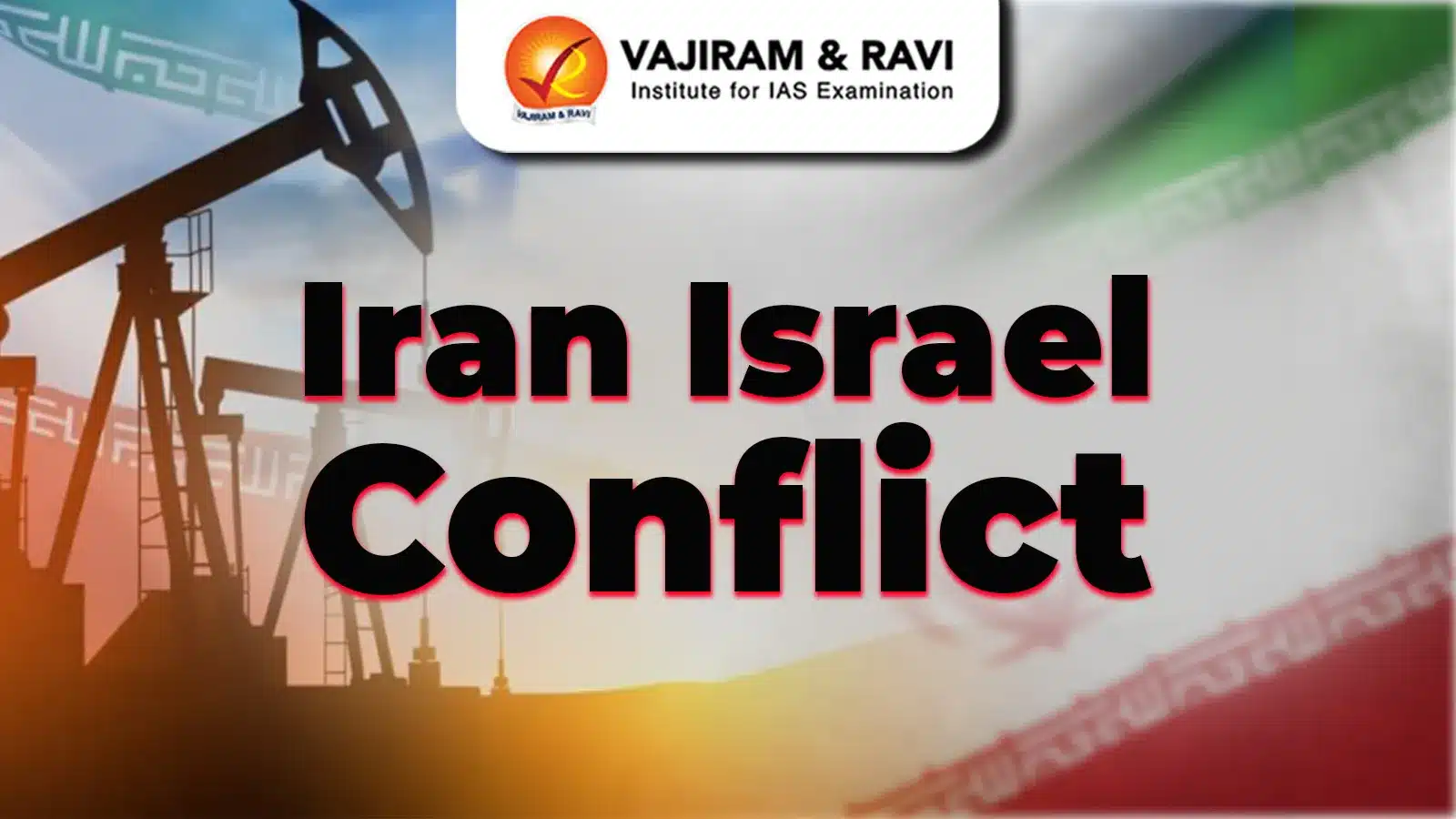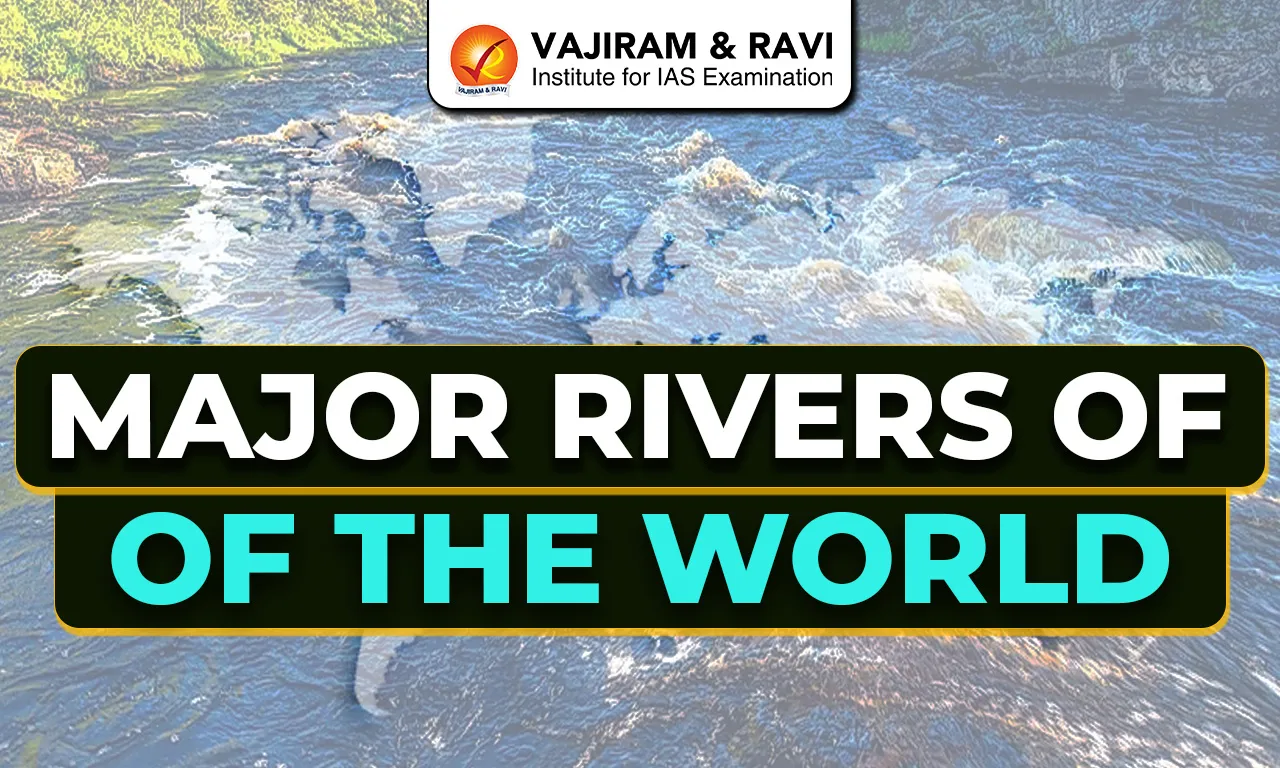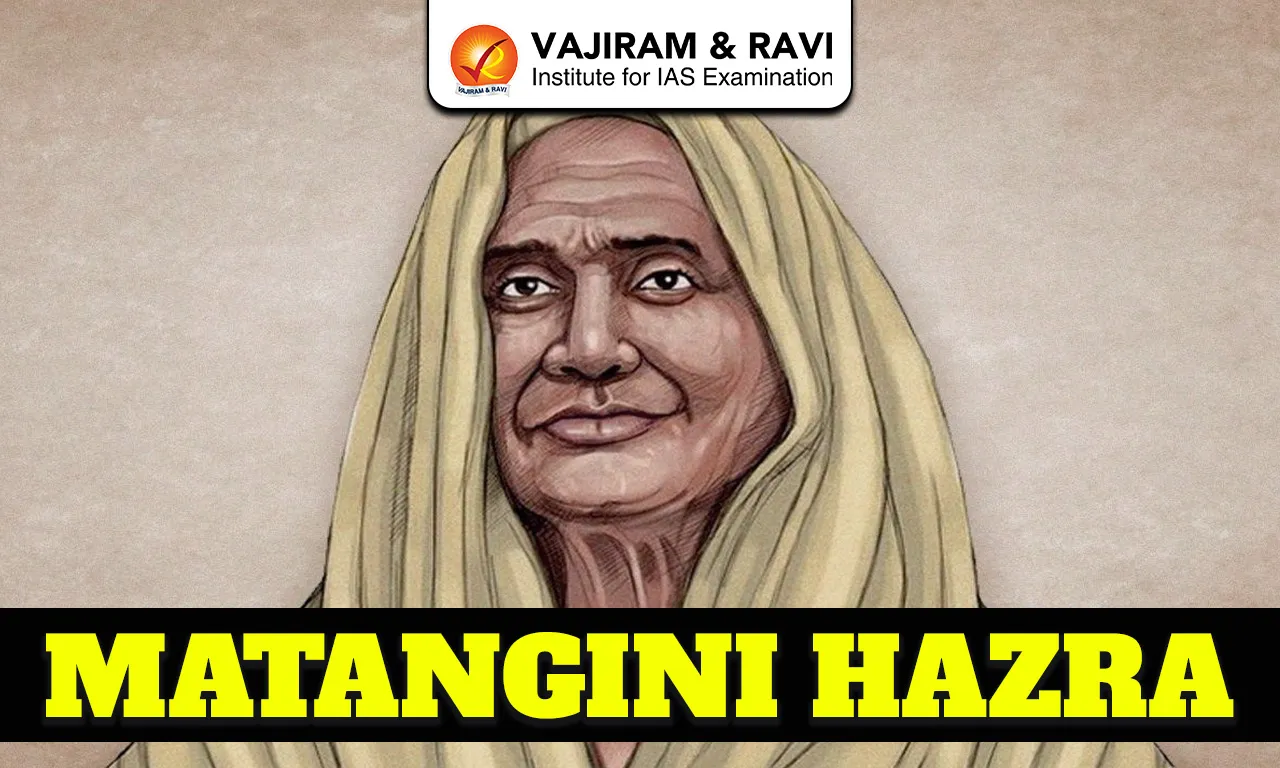Israel launched a full-scale military strike on Iran named “Operation Rising Lion” targeting missile and nuclear infrastructure. This strike has taken place after IAEA declared Iran in violation of its nuclear safeguard agreement.
Iran Israel Conflict
The historical background of the Israel Iran conflict can be traced back to the Islamic Revolution that took place in Iran 1979. This revolution adopted an anti-Israel, theocratic posture. Iran has been exerting pressure on Israel with the help of allies, like Hezbollah, Hamas, Houthis and Iraqi militias, avoiding a direct war with Israel. Israel has a history of striking nuclear sites in Iraq and Syria, but Iran poses a tougher and more sensitive challenge. Its growing threat has also pushed many Sunni Arab countries to improve ties with Israel through the Abraham Accords, putting the Palestine issue on the back burner.
Iran-Israel Current War Escalation
According to the IAEA Resolution, Iran can be declared non-compliant with the 1974 safeguards Agreement. This was due to the enriched uranium that was found at undeclared sites. There are various trigger factors that have led to the present escalations in between Iran and Israel:
- Nuclear Talks Break Down: The breakdown of US-Iran negotiations, led Israel to view this as Tehran exploiting diplomatic gaps.
- Direct Action: Considering indirect attacks to be ineffective, Israel opted for striking Iranian targets directly instead of going with proxies.
- Israel Internal Politics: PM Netanyahu, misused the security tensions to delay elections and consolidate power.
IAEA’s Latest Assessment on Iran’s Nuclear Activities
- Evidence of Non-Compliance:The IAEA has detected unexplained traces of uranium and continued lack of transparency at key Iranian sites—Lavisan-Shian, Varamin, and Turquzabad.
- Significant Legal Breach: This marks the seventh recorded violation under Article XII.C of the IAEA Statute, potentially triggering further scrutiny and referral to the UN Security Council.
- Implications for Sanctions: European parties to the JCPOA may consider activating the snapback mechanism, reinstating previous UN sanctions against Iran.
- Iran’s Rebuttal and Escalation:In response, Iran has rejected the IAEA’s conclusions, threatened withdrawal from the Non-Proliferation Treaty (NPT), and initiated new underground uranium enrichment projects.
- Critical Upcoming Report: The next IAEA report, expected in August, will be pivotal. Continued non-cooperation by Iran could significantly heighten diplomatic strain and escalate regional security concerns.
U.S. Joins Israel-Iran Conflict Direct Strikes on Iranian Nuclear Facilities
The United States has formally entered the Israel-Iran conflict with precision airstrikes targeting three of Iran’s key nuclear sites—Fordow, Natanz, and Isfahan. Conducted using B-2 stealth bombers equipped with bunker-busting bombs, the attack included a successful hit on the heavily fortified Fordow Uranium Enrichment Plant, a facility previously beyond Israel’s operational reach.
Key Developments include:
- Strategic Escalation: This marks the first direct U.S. military action in the ongoing conflict, signaling a significant shift from prior support roles to active engagement.
- Strengthening the U.S.-Israel Alliance: The strikes underscore an “iron-clad” U.S. commitment to Israel’s security, reinforcing its stance that Iran’s nuclear program poses an existential threat.
- Policy Reversal: The operation reflects a departure from former President Trump’s stated doctrine of avoiding foreign military entanglements, contradicting his past promises of restraint and swift conflict resolution.
- Operational Impact: The U.S. successfully targeted deeply buried nuclear infrastructure, providing Israel with a tactical edge it previously lacked, and advancing its long-standing goal of curbing Iran’s nuclear ambitions.
Broader Implications of the Iran-Israel War
Following are the global as well as regional implications of the Iran-Israel War:
Iran-Israel War Global Ramifications
- Energy Market Volatility: Rising tensions in the Strait of Hormuz—through which approximately 20% of the world’s oil supply transits—pose a serious threat of global oil price escalation and market instability.
- Strategic Dilemma for the United States: Washington faces the challenge of supporting Israel while avoiding direct military entanglement and safeguarding its regional bases and assets.
- Nuclear Proliferation Risks: Iran’s possible withdrawal from the Nuclear Non-Proliferation Treaty (NPT) could trigger a regional arms race, undermining global non-proliferation norms.
Iran-Israel War Regional Dynamics
- Escalation Across the Middle East: Conflict spillovers may intensify drone warfare and proxy engagements in countries such as Iraq, Syria, and Lebanon, destabilizing an already fragile region.
- Setbacks to Diplomacy: Ongoing diplomatic initiatives—including the revival of the US-Iran nuclear deal and efforts toward a two-state solution—risk collapse amidst heightened hostilities.
- Militant Mobilisation: Iran-aligned groups such as the Popular Mobilization Forces (PMF) and the Houthis could escalate strikes on Israeli and American targets, increasing the threat of a wider regional war.
Iran-Israel War Implications for India
- Diaspora Vulnerability: With nearly 8 million Indian nationals residing in West Asia, their safety becomes a critical concern, especially if evacuation becomes necessary.
- Energy Security Risks: Over 60% of India’s crude oil imports transit through the Strait of Hormuz; any disruption may lead to significant supply shocks and inflationary pressure.
Diplomatic Balancing Act: India must tread carefully, preserving its strategic partnerships with both Israel and Iran, while navigating a complex landscape of rising sanctions and geopolitical alignments.
Last updated on February, 2026
→ UPSC Notification 2026 is now out on the official website at upsconline.nic.in.
→ UPSC IFoS Notification 2026 is now out on the official website at upsconline.nic.in.
→ UPSC Calendar 2026 has been released.
→ Check out the latest UPSC Syllabus 2026 here.
→ Join Vajiram & Ravi’s Interview Guidance Programme for expert help to crack your final UPSC stage.
→ UPSC Mains Result 2025 is now out.
→ UPSC Prelims 2026 will be conducted on 24th May, 2026 & UPSC Mains 2026 will be conducted on 21st August 2026.
→ The UPSC Selection Process is of 3 stages-Prelims, Mains and Interview.
→ Prepare effectively with Vajiram & Ravi’s UPSC Prelims Test Series 2026 featuring full-length mock tests, detailed solutions, and performance analysis.
→ Enroll in Vajiram & Ravi’s UPSC Mains Test Series 2026 for structured answer writing practice, expert evaluation, and exam-oriented feedback.
→ Join Vajiram & Ravi’s Best UPSC Mentorship Program for personalized guidance, strategy planning, and one-to-one support from experienced mentors.
→ UPSC Result 2024 is released with latest UPSC Marksheet 2024. Check Now!
→ UPSC Toppers List 2024 is released now. Shakti Dubey is UPSC AIR 1 2024 Topper.
→ Also check Best UPSC Coaching in India
Iran Israel Conflict FAQs
Q1. Why are Iran and Israel fighting?+
Q2. Which army is stronger, Israel or Iran?+
Q3. Does India support Iran or Israel?+
Q4. Which Iran Site Did the US Bomb?+
Q5. Why is the Iran-Israel War happening?+
Tags: iran-israel conflict






















